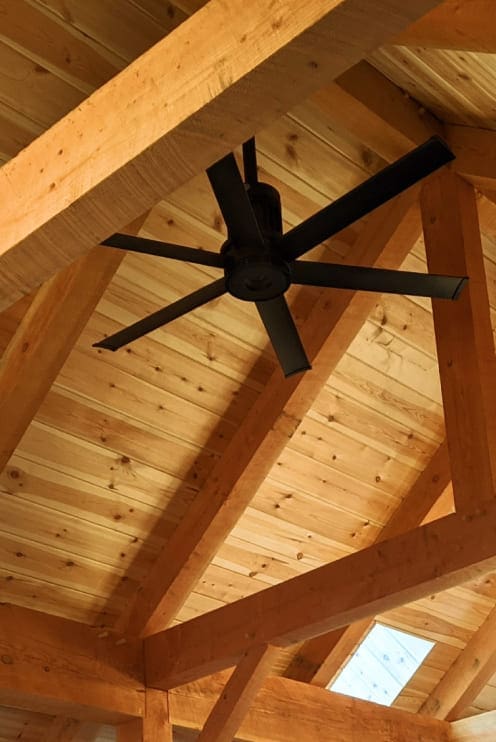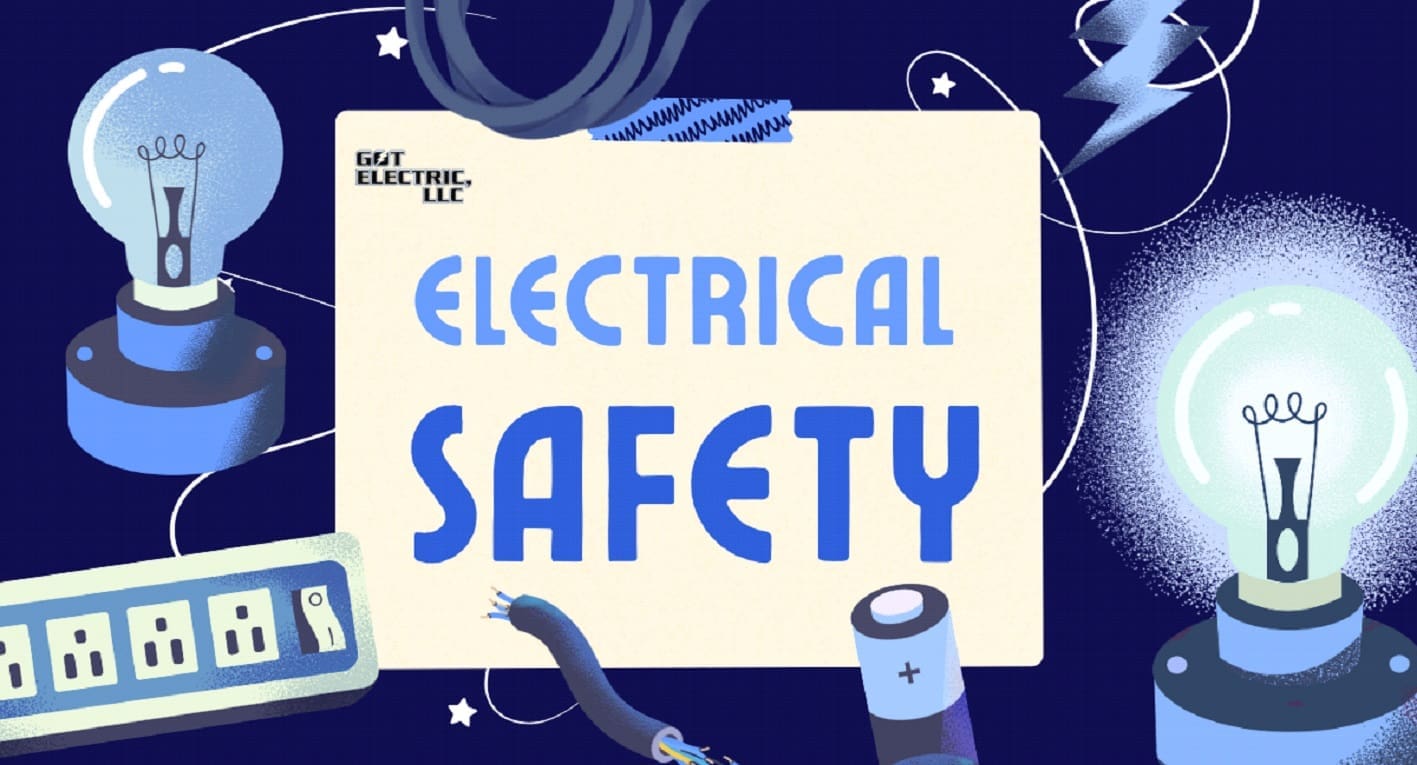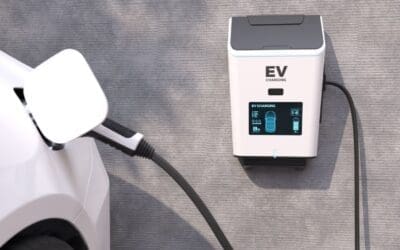As a Maryland homeowner, you probably don’t spend a lot of time thinking about your home’s electrical system until something goes wrong. But a little prevention goes a long way. Electrical issues are one of the top causes of house fires in the U.S., and many of them can be avoided with just a bit of know-how and regular maintenance.
At Got Electric, we’ve seen firsthand how small issues can quickly turn into major problems. That’s why we’ve put together this list of 11 practical electrical safety tips to help Maryland homeowners keep their homes and families safe.
Let’s break it down.
1. Pay Attention to Warning Signs
If your lights are flickering, your breakers are tripping, or you smell something burning around your outlets, don’t ignore it. These are all signs that something’s not right.
Electrical issues don’t fix themselves. If something feels off, it probably is. Call a licensed Maryland electrician and get it checked out before it becomes a bigger issue.
According to statistics, electrical failures contribute to thousands of home fires each year. This results in hundreds of injuries and deaths each day. However, many of these incidents can be prevented if a qualified electrical contractor does the installation and maintenance. Having the knowledge of implementing proper safety measures is important to prevent such incidents from happening.
2. Don’t Overload Your Outlets
We’ve all done it by plugging too many things into one outlet using a power strip or extension cord. But doing this repeatedly can cause overheating, which leads to fires.
Stick to one high-wattage appliance per outlet and consider installing additional outlets in areas where you need more access. It’s safer and more convenient in the long run.
3. Use GFCI Outlets in the Right Places
Maryland building codes require GFCI (Ground Fault Circuit Interrupter) outlets in areas with moisture—think kitchens, bathrooms, garages, basements, and outdoor spaces. These outlets shut off power if they detect a short, potentially saving you from a nasty shock.
If your home doesn’t have them, especially in older properties, it’s time to get them installed.
4. Keep Your Electrical Panel Up to Date
Your home’s electrical panel is like its brain. It controls how electricity is distributed. If your panel is outdated or overloaded, it’s a risk.
Panels older than 25 years should be upgraded. If your breakers trip often or you hear buzzing from the panel, don’t wait to call a pro.
5. Avoid DIY Electrical Projects
We know YouTube makes it look easy, but unless you’re a trained electrician, it’s just not worth the risk. Electrical work can be dangerous if done incorrectly, and in Maryland, a permit is often required even for seemingly small jobs.
Whether it’s installing a ceiling fan or running new wires, get a licensed contractor involved. Your safety and your home insurance depends on it.
6. Don’t Rely on Extension Cords for the Long Term
Extension cords are meant for temporary use only. Running cords under rugs, through doorways, or plugging in too many devices is asking for trouble.
If you’re always reaching for an extension cord, it’s time to add more outlets. It’s an easy fix that makes a big difference.
7. Childproof Your Outlets
If you’ve got little ones crawling around, outlet covers are a must. Better yet, upgrade to tamper-resistant outlets, which are required in all new Maryland homes. They have built-in shutters that block foreign objects like keys, toys, or tiny fingers from being inserted.
8. Practice Outdoor Electrical Safety
Outdoor lighting, tools, and holiday decorations need special attention. Always use weather-rated extension cords and plug them into GFCI outlets.
After a storm or heavy rain, inspect outdoor wiring before flipping anything on. Water and electricity don’t mix especially in Maryland’s storm-prone spring and summer months.
9. Unplug During Thunderstorms
Maryland storms can cause serious surges that damage appliances and electronics. When bad weather rolls in, it’s smart to unplug sensitive devices like TVs, computers, and kitchen appliances.
Even better? Install whole-home surge protection for a more permanent solution.
10. Check Your Cords and Plugs
Worn-out cords are one of the most overlooked hazards. Take a look at your appliance cords if they’re frayed, cracked, or feel loose in the socket, replace them right away.
Never tape up a damaged cord or try to patch it yourself. It’s not safe, and it’s not worth the risk.
11. Schedule Regular Electrical Inspections
Finally, one of the most important electrical safety tips we can offer is to schedule regular inspections. If your home is over 30 years old, or you’ve added new appliances or renovated recently, your system might not be up to today’s safety standards.
A licensed Maryland electrician can evaluate your system, point out any risks, and recommend upgrades to keep your home running smoothly.
Why Maryland Homeowners Trust Go Electric
At Got Electric, we’re not just here to fix problems—we’re here to prevent them. Our licensed electricians serve homeowners across Maryland, offering everything from panel upgrades and outlet installations to surge protection and whole-home inspections.
We pride ourselves on clear communication, honest pricing, and top-notch craftsmanship—because when it comes to your safety, nothing else will do.
Wrapping Up
Staying on top of electrical safety doesn’t have to be complicated. With these 11 electrical safety tips, you’ll be in a much better position to avoid fire hazards, protect your appliances, and keep your family safe.
And if you ever need help or just want peace of mind, give us a call. We’re proud to help Maryland homeowners keep their homes running safely and smoothly.
With offices in Ijamsville, MD & Linville, VA, Got Electric offers residential and commercial electric work, including installation, safety inspections, repairs, lighting design, and troubleshooting.
Got Electric also specializes in solar Energy Projects. Our electricians are fully licensed by state and local jurisdiction, ensuring that your electrical projects will be installed to industry and code standards.
Energized by Auxilium Technology






